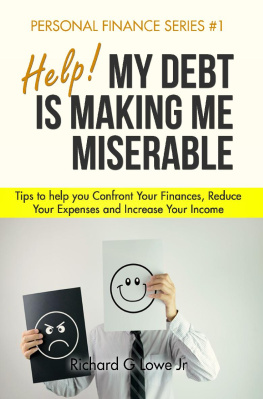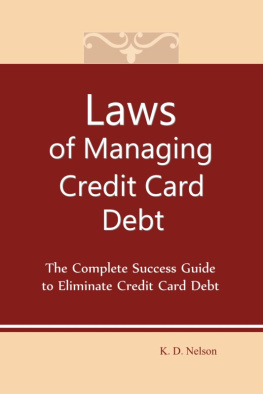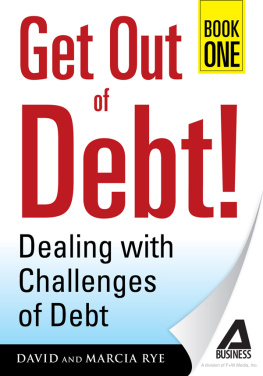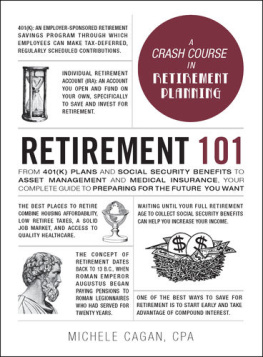Praise for Just Money
Just Money is an extraordinary work that burrows below the surface of a common Australian myth. Kurmelovs furnishes us with a detailed, sobering and sometimes darkly comic account of a financial game that has been rigged against us, especially for those who are poor or struggling. Australias system of debt is a hall of mirrors and this book takes us on an illuminating tour of financial distress and the forces that shape it. This is an important book and Kurmelovs is a master of precision, wit and understanding. Rick Morton
Royce Kurmelovs examines how Australia became the lay-by nation, revealing how we fell in love with debt and exposing those who work in the shadows to ensure we stay there. A deeply researched, clearly written and humane account of how Australias financial system can ensnare us all. Brigid Delaney
Royce Kurmelovs was in the wrong place at the wrong time when he had a traffic mishap. This book has the opposite fate it could not be more pertinent, or timely. The accident sent the author spinning into a realm of financial ruin and precarity we seldom hear about, though thousands of Australians are trapped there. Drawing from a rare degree of research and reporting, Just Money takes us on a descent into the dark world of debt and indebtedness, while Kurmelovs remains iridescent, humane and attentive. Highly recommended. Richard Cooke
One of Australias most important socio-political voices Kill Your Darlings
 Royce Kurmelovs is an award-winning journalist whose work has been published by the ABC, CNN, BBC, Al-Jazeera English, VICE , The Guardian and elsewhere. He is the author of the bestselling and critically acclaimed books The Death of Holden , Rogue Nation and Boom and Bust .
Royce Kurmelovs is an award-winning journalist whose work has been published by the ABC, CNN, BBC, Al-Jazeera English, VICE , The Guardian and elsewhere. He is the author of the bestselling and critically acclaimed books The Death of Holden , Rogue Nation and Boom and Bust .
Contents
Prologue: A Costly Mistake
I had just turned right off Port Road, a main arterial thoroughfare that runs west out of Adelaide. I was a hundred metres away from home when it happened, on a route I had travelled a thousand times before. That, as people keep telling me, is the way it so often goes.
As I neared the intersection before the final stretch to home, I slowed for the Give Way sign and checked for oncoming traffic. With one sweeping glance, I decided the way was clear. To this day, I swear it was clear.
I was wrong.
It had been one of those mornings. I had woken feeling tired. It was a workday and I had dragged myself out of bed to drop off some stuff to my ex, who had called time on our four-and-a-half years together. The split had been amicable, if not mutual, but seeing her was a reminder of everything I had lost. Afterwards, I had walked back to my car, my head foggy, my thoughts dream-like. As I gripped the steering wheel and turned the key in the ignition, I sighed heavily. I wanted to go home and climb back into bed.
In all other respects the drive home was routine. I remember slowing to check for oncoming traffic as I approached the final intersection and then, as I accelerated, for the briefest of moments, I looked away. My ancient Proton hatchback ran 10 kilometres below what was displayed on the speedometer, so I wasnt moving quickly.
When I lifted my gaze, the 2017 Mazda 3 materialised. I remember the crunch a vibrating sensation in my palms as steel collided with steel, and the force tearing off the front bumper. Each quiver charged up my arms before some equation of mass and velocity violently spun the car around. From deep in my throat came a short, cartoonish yell. My knee slammed against the plastic console and my head bent at an angle. Then everything went still.
The whole thing was over in seconds. My car had come to a stop in the centre of three lanes. The first thing my eyes focused on was the bank of cars forming a line in front of me, waiting and probably wondering if I was hurt.
I wasnt. I knew that straight away. I never even lost consciousness.
I got out immediately and looked across to the gunmetal grey Mazda sedan. My car had left a gash in the engine panel on the drivers side and sent the vehicle up over the gutter. I moved my lanky six-foot frame to the drivers door and crouched to look in the window. The airbags had fired, and inside I could see the faint outline of a woman. My fingers curled around the door handle and, swallowing a growing sense of panic, I pulled it open with a tug.
Hello? I said gently.
No answer.
Nothing else seemed to exist in that moment. The only two people in the world were me and the female driver. I knelt on the road beside the open door so that my eyes would be level with hers. I could see her flank curled into the drivers seat, the details of her form obscured by the airbag. For a moment I thought the worst. I tried again.
Hello?
There came a slight mumble and the womans body began to shake. She straightened herself in the seat. She was dressed in business-casual, presumably on her way to work. When she looked over at me, she answered with more noise than words.
Youve been in a car accident, I said. Im the other driver. Are you okay?
Yeah, she said. Im fine. Just the airbags. There was a pause before out tumbled the words: Im pregnant.
Something in my chest sank. I asked whether she could feel her legs; she said she could. I asked her to wiggle her toes, and she did. Behind me another driver had pulled over to help. He was a tall man with a square jaw in an orange puffer vest.
Everyone okay? he asked.
I told him we were but suggested he call an ambulance. Along with another passer-by who had been waiting for a bus, the man helped me move my car off the road. By the time we got back to the other driver, she had climbed out of her vehicle. She wore an electric blue shirt underneath her blazer and her ash-blond hair was tied back. A wry smile spread across her face as she quickly processed what had just happened to her.
This is the second time in six months, she said.
The paramedics arrived first, then the fire department, then the cops. The medics gave the woman a check-up and the guys in full fire gear asked if anyone needed to be cut out. When I told them no-one did, they seemed disappointed. Instead, they sprinkled a kitty-litter-like substance around my car.
The cop who had been called to the scene was middle-aged with a salt-and-pepper mop of hair, big round glasses and a handlebar moustache. He took statements from the woman, the man in the orange puffer jacket and me, then ordered the cars towed to the nearest yard. That will be $300, he said. Then he fined me $400 for failing to give way.
I noticed the weather then. It was cold, with a biting sort of chill that worked its way into your bones. And it had started to drizzle.
You think shell be alright? I asked the cop, gesturing towards the ambulance, into which the female driver had disappeared.
Yeah, he said. They said shes fine, and so is the baby. Theyre just going to take her to hospital for observation. Just in case.
I repeated the words just in case in my mind and there was a moment before either of us spoke again.
I know this sounds crazy, I said, and it may not look like it. But Im a careful person.
Seconds ticked by as we stared in silence at the ambulance. Then came the $25,000 question: Do you have insurance?
The cop asked this in a hopeful tone and what followed was a conversation I was to have many times over the next year. No, I would say, I didnt have insurance. And, yes, the accident had been bad, though no-one had been hurt. Yeah, it was my fault. And no, I didnt have a problem making things right by paying compensation. In fact, I wanted to make it right.









 Royce Kurmelovs is an award-winning journalist whose work has been published by the ABC, CNN, BBC, Al-Jazeera English, VICE , The Guardian and elsewhere. He is the author of the bestselling and critically acclaimed books The Death of Holden , Rogue Nation and Boom and Bust .
Royce Kurmelovs is an award-winning journalist whose work has been published by the ABC, CNN, BBC, Al-Jazeera English, VICE , The Guardian and elsewhere. He is the author of the bestselling and critically acclaimed books The Death of Holden , Rogue Nation and Boom and Bust .